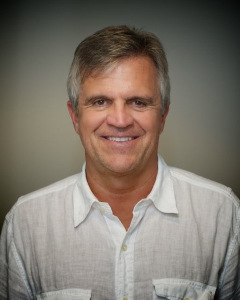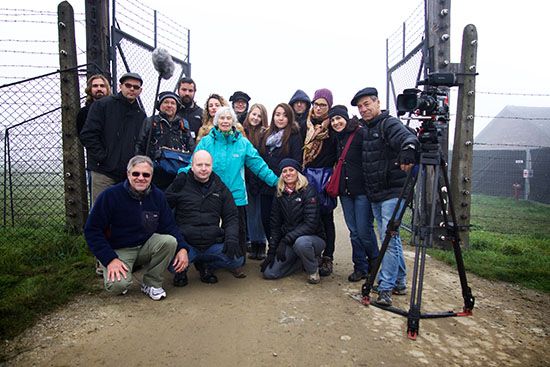
Steve Purcell
Out of the dozens of films, concerts and other projects he’s worked on throughout his career, Steve Purcell says the USC Shoah Foundation-produced educational film One Day in Auschwitz is the most meaningful of them all.
Purcell has over 25 years of experience as a film editor, producer, director and still photographer, with credits including feature films and concert specials for some of the biggest names in Hollywood. He is currently General Manager of Chainsaw, Inc., a leading provider of post-production services for television, feature films and other media, based in Los Angeles.
Last year, when USC Shoah Foundation was formulating its multi-faceted program Auschwitz: The Past is Present, which would commemorate the 70th anniversary of the liberation of Auschwitz, Purcell received a call from producer Leslie Wilson, who was working on the program. Wilson asked if he could direct an hour-long documentary that would be broadcast on Discovery on Jan. 27, 2015, based on the life of Holocaust survivor Kitty Hart-Moxon. Kitty’s testimony is in the Visual History Archive and she is a friend of Stephen Smith, executive director of USC Shoah Foundation. The film would show her visiting Auschwitz with two students, describing what she experienced there and how she survived. It was later titled One Day in Auschwitz.
A small cast and crew was quickly assembled and began shooting on location at Auschwitz-Birkenau State Museum. Purcell said Smith was instrumental in guiding the project, since he knew Kitty’s story so well, so Purcell felt his job was to stay as true to her story as possible.

(Cast and crew of One Day in Auschwitz filming at Birkenau)
“It was important for me that this was as honest and accurate a representation of the experience she’d had in her life,” Purcell said. “I’ve never really worked on something where people will look at it 50 years from now as the gospel of what really happened. There’s a tremendous amount of attention to detail on all of our parts, especially Stephen, to make sure that everything was accurate.”
In the film, the two high school students, Natalia Smith and Lydia Hollingsworth, ask Kitty questions about how she survived and what she saw. Kitty, who was their age when she was in Auschwitz, describes being separated from family, watching fellow prisoners die or be murdered in front of her, and how she procured jobs for herself in the camp that kept her alive.
Purcell said Kitty was extremely matter-of-fact and composed throughout the shoot, but he knew her stoicism was a source of strength.
“Her dealing with it in that way, my interpretation was, it was a way of surviving it and protecting herself,” Purcell said. “You go through something like that and you could become calloused and jaded. If you don’t have a way to protect yourself from what you’re experiencing it could destroy you.”
Smith and Hollingsworth’s participation makes the film very real for younger viewers, he added.
Comcast subscribers will be able to watch One Day in Auschwitz from April 15 to June 1, 2015, as part of Comcast’s annual Days of Remembrance: PastFORWARD programming. Purcell said he and the rest of the cast and crew are keenly aware of the impact One Day in Auschwitz can have on future generations, which motivated them to tell Kitty’s story with the most care as possible.
“One of the things I realized early on is [we’re] creating a document that will live on beyond all of us,” he said. “The story that we put in this documentary becomes the story that will move forward.”